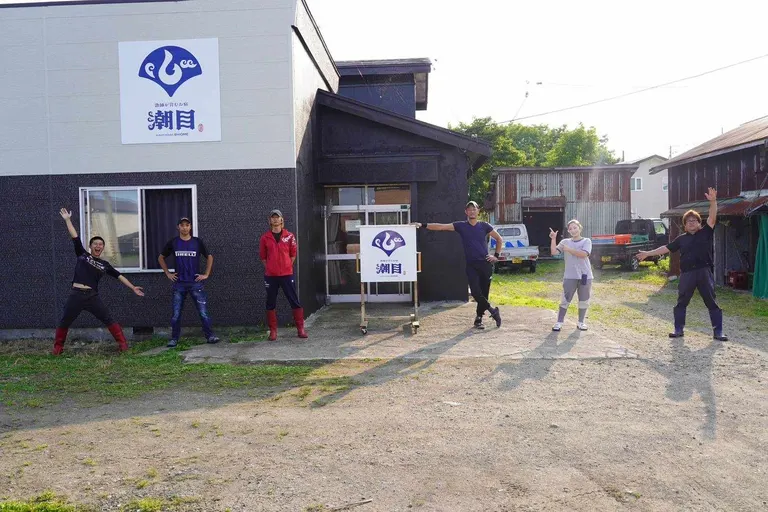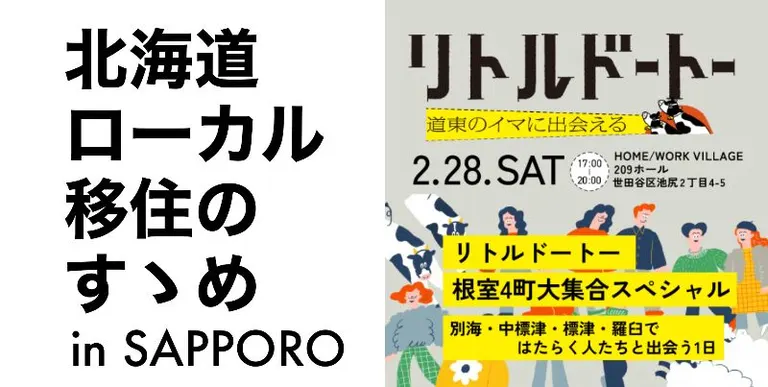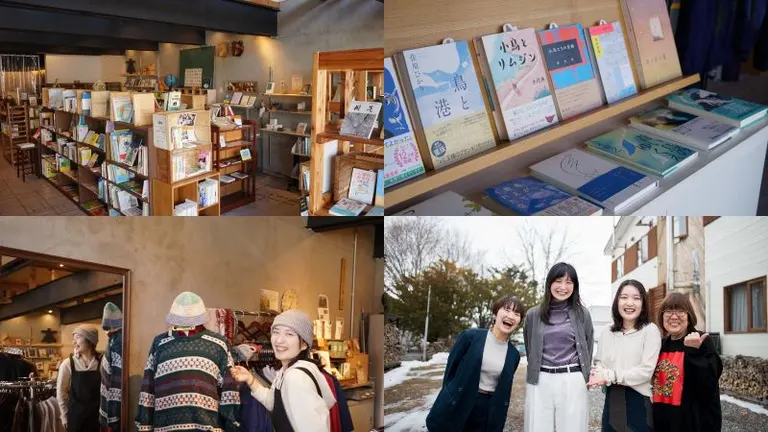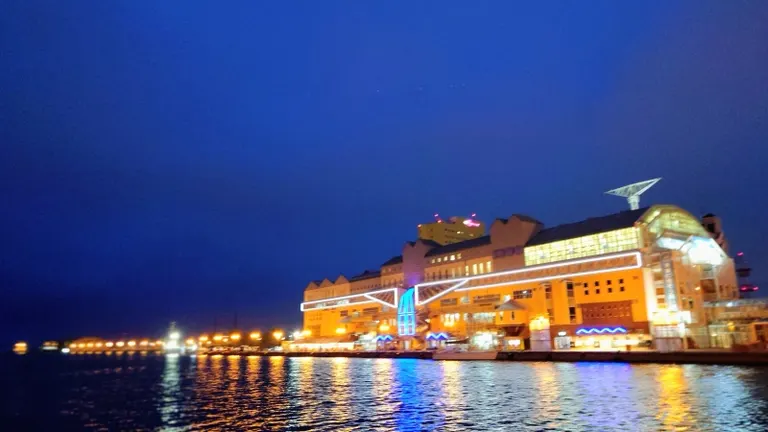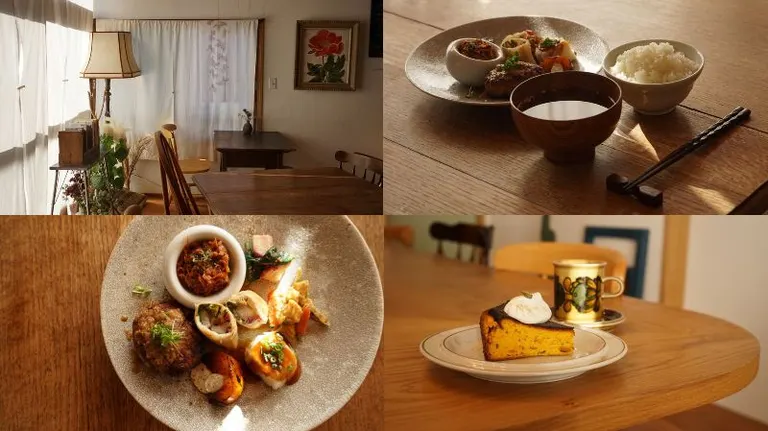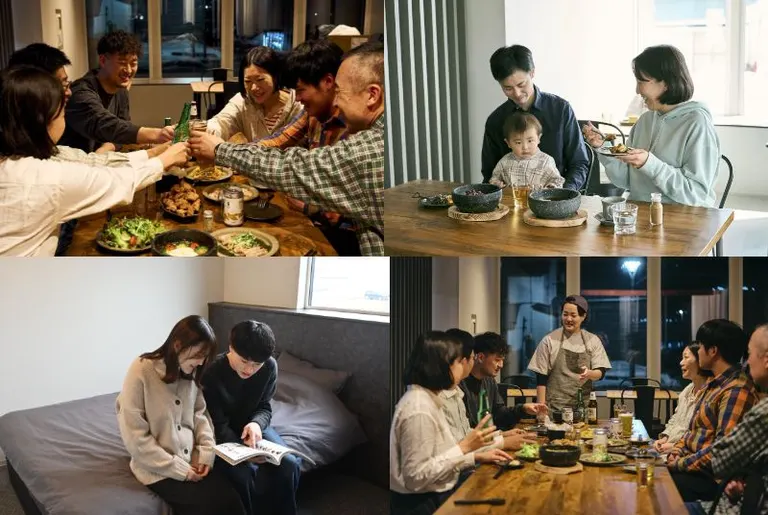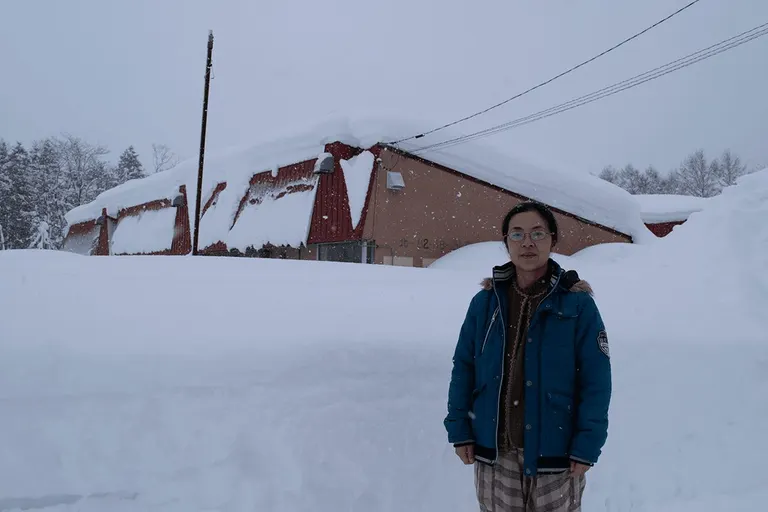
ARTICLES
Finding a Better Life in a Depopulated Area: Michiko Kurushima on Human Connection in Hokkaido
In Iwamizawa, Hokkaido, about a 30-minute drive from Iwamizawa Station, lies a small hamlet called Miruto, with a population of around 400. Even amidst the recent COVID-19 pandemic, time flows peacefully and unchanged in Miruto.
In the winter of 2021, we spoke with Michiko Kurushima, who runs a publishing business in Miruto, in her traditional row house nestled in a landscape blanketed in pure white snow.

The Beginning of Life in Miruto
Ms. Kurushima moved from Tokyo to the urban center of Iwamizawa City in 2011. The catalyst for her move was the Great East Japan Earthquake, which prompted her to re-evaluate her life.
At the time of the earthquake, Ms. Kurushima was on childcare leave. She was able to get permission from the publishing house where she worked to continue her job remotely and returned to work from home.
For about four years, until 2015, she worked remotely for the publisher. That year, she transitioned to being a freelance professional.
While living in Iwamizawa, Ms. Kurushima began to wonder, "Is there something I can do precisely because I live in Hokkaido?"
She often saw her friends from Tokyo visit Hokkaido, feel liberated, and return home re-energized.
This sparked a growing desire to create an "ecovillage" that could offer people the option of short-term or long-term stays, or even moving to Hokkaido. In the spring of 2016, she decided to buy a mountain in the Miyamura district of Iwamizawa.
Wanting to live near her mountain, Ms. Kurushima learned from an acquaintance about a vacant house in Miruto, which was close to the Miyamura district. In 2018, she moved from the center of Iwamizawa to Miruto.
Reflections on Life
"Since moving from Tokyo to Miruto, I find that my writing flows much more smoothly."
Ms. Kurushima says that by moving to Miruto, most of the "difficulties of living" she felt in Tokyo—stress from environmental factors like noise and exhaust fumes, and issues like finding daycare—have been resolved.
Working as an editor surrounded by the smells and sounds of nature, she can now write with a deep sense of calm.
However, she felt a certain "pain" during the state of emergency in 2020.
"I thought that by living in Miruto, I had resolved the things I couldn't do and the stresses I felt in Tokyo.
But during the state of emergency, I realized there was a fundamental 20% of my problems that moving couldn't solve. I had always been busy with outward-facing work, but with the stay-at-home request, I spent more time at home with my three children and husband. I started to wonder if I wasn't good at parenting, or if I had neglected my family. These internal issues that hadn't surfaced before seemed to rise to the top."
In an environment free from external frustrations, both in her work and personal life, she was able to listen to her inner voice, which led her to confront long-hidden problems.
So, what kind of town is this nature-rich Miruto?
"The Miruto area doesn't have convenience stores or supermarkets, and public services aren't as comprehensive as in the city center. It's a place that wouldn't appeal at all to people who want to move to a convenient and comfortable town. There are no real estate agents, and it's hard to find a house online, so I think it's characterized by a lot of people with a similar mindset who don't see these challenges as challenges.
It attracts people who feel a sense of unease with the society of mass production and mass consumption, and those interested in environmental protection. It's common to meet someone for the first time and feel like you've known them for a long time."
Ms. Kurushima mentioned that about 3 to 4 interesting new residents move to Miruto each year. The newcomers help each other out and organize events together.
Miruto is a place where people can connect naturally. Her work has also created connections with the local people.
"Thankfully, people in Hokkaido don't just leave you on your own when you're trying something new. They introduce you to people without you even asking, and as you go and meet them, your network expands.
For my bi-monthly series on colocal, I sometimes interview local people. Hearing their life stories and other deep conversations I wouldn't normally hear has helped me become a part of the community."
Here is the colocal series Ms. Kurushima writes for.
Come on Over! Building an Ecovillage Together
A Change in Perspective on Work
Since moving, her stance on work has also changed.
"When I was in Tokyo, I was desperately searching for what I should do and how I should live, trying to create something myself. The work that came my way then was from my boss, and I felt a sense of obligation that was painful.
But strangely, since I started my publishing activities in Miruto, I have this feeling that the things I need to do just fly at me from out of nowhere at an incredible speed, without me consciously trying. I've come to think that it might be my mission to handle each one of these tasks.
Right now, most of my work is commissioned, but I'd like to gradually increase the proportion of my own publishing projects."
Ms. Kurushima runs a publishing project called "Mori no Shuppansha Michikuru" (Michikuru, the Forest Publisher). There, she emphasizes creating books by "handwriting" and "selling them directly" to her readers.
"In traditional bookmaking, there are inevitably creative tasks and non-creative tasks, like transcribing audio and preparing files for printing. By making every step of the process as creative as possible, I thought the book could be completed while retaining its passion. That's why at 'Mori no Shuppansha Michikuru,' I make books using the 'handwriting' method.
I also had questions about the typical book distribution methods. So, I've chosen to sell my books through 'direct' communication with the buyers. Feeling the warmth and hearing the words of the people who buy my books boosts my motivation for bookmaking."
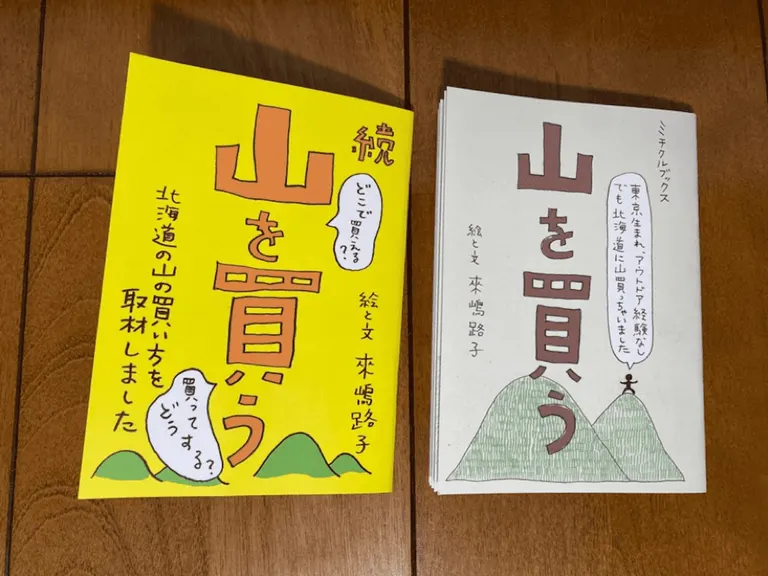
A book by Ms. Kurushima. Both the text and illustrations are entirely handwritten.
"Inaka no Honne" is Coming Soon
Since 2019, Ms. Kurushima has been participating in the "Manjisen Project," run by the Hokkaido University of Education, Iwamizawa Campus. This project is an initiative for students to learn about art management in the mountainous areas of Iwamizawa. In the past, they held events using a closed-down school building, but in fiscal year 2020, due to the COVID-19 pandemic, they avoided crowds by having students work in small groups to interview local residents and create a book.
Twenty-six students from the university interviewed residents of the Miruto, Mōyō, and Manji districts of Iwamizawa. Ms. Kurushima served as the editor. The resulting book, "Inaka no Honne" (The True Feelings of the Countryside), will be released by Nakanishi Shuppan on March 19, 2021.
"Moving doesn't necessarily solve the personal issues you're dealing with, but I hope people can see that it offers a chance to make new discoveries, eliminate external difficulties in life, and start thinking more simply. Conversely, if you can learn to think about things simply, it might not matter where you live.
We're in a situation that feels constricting due to the pandemic, but I hope this book can serve as a subtle hint that there might be a way to live through it with flexibility. I think it's filled with mindsets that could be helpful even for people living in cities."
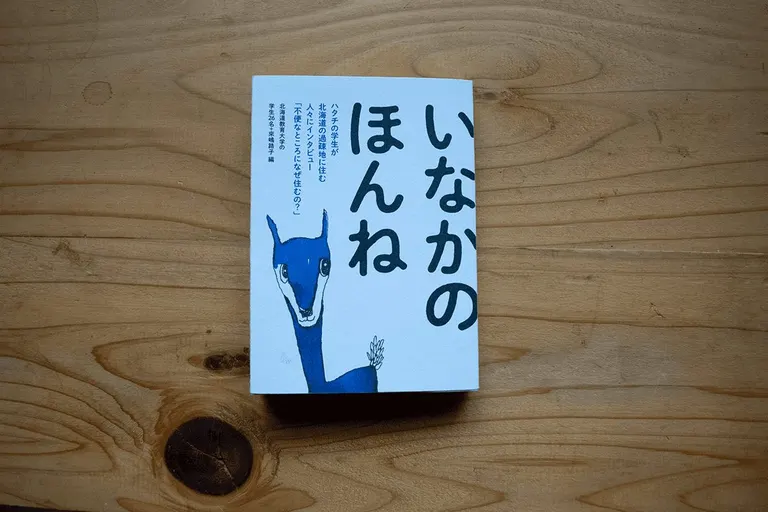
This is a book I'd highly recommend to anyone feeling lost or constrained by our rapidly changing world.
A region that attracts interesting people—getting to know it feels like it could lead to new encounters.






